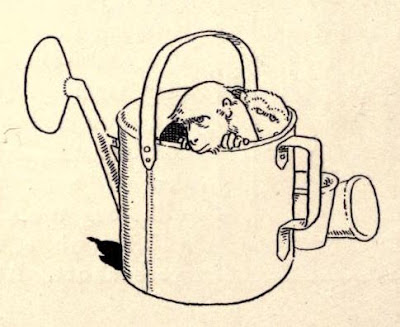Summary: As the king and a horsedealer attempt to trick and out-trick one another, they learn a lesson about how like-likes-like.
Read the story below:
BIRDS OF A FEATHER
Once upon a time there was a big horse called Chestnut. He was as fierce as a fury, and bit everybody who came near him; his groom always had a broken bone, or a bruise at the least; and, as for the other horses, let Chestnut loose in the herd, and there was a fine to-do: a kick for one, a bite for another; it was hurry, skurry, worry, till they took themselves off and left him alone in the clover.
Now the King wanted to buy some horses, and a dealer had driven down a couple of hundred of them for the King to buy. But the King was a skinflint, and wanted to get them cheap; so he dropped a hint to his groom, that it would not be a bad thing if Chestnut made acquaintance with these horses; at the same time, he dropped a gold piece in the groom’s hand.
So the groom led Chestnut by this new herd, and, all of a sudden, he quietly flicked Chestnut with his whip; Chestnut reared and plunged, the groom shouted, and, pretending to find the horse too strong for him, let go the halter. Off galloped Chestnut, kicking up his heels in the air, roaring and whinnying; and fine fun he had among the new horses! By the time he had done with them, hardly one had a whole skin.
The poor dealer was in despair. He would be ruined!
And next day, when the King came to see the horses, he turned up his nose. “Pooh! do you suppose I want bruised old hacks like that? Look at that sore! And here is a broken jaw! Why, half of them limp!”
In vain the dealer protested that it was Chestnut’s fault; the King only laughed, and asked if he expected him to believe that one horse could do all that mischief. (And yet, as you know, it was one horse, and at the King’s own bidding too.)
However, it was a pity that he should have to take them back again, the King said; so, if he liked, as a favour, he would buy the horses, at half price.
The dealer was not taken in by this, but he pretended to be very grateful, and went home again, wondering what he could do. He was afraid to offend the King, and, indeed, very few people were rich enough to buy his splendid horses. So he knew that he would be obliged to take some more down to the King another time.
Then he suddenly remembered he had just such another vicious brute at home, named Strongjaw, that nobody could do anything with. “Aha!” said he; “I have it! I’ll take Strongjaw down with me next time, and if he does not prove a match for Chestnut I am very much mistaken.” He chuckled with glee as he thought what a fine fight there would be between the two.
Next time, as he had resolved, he brought Strongjaw with the drove, and as soon as the King’s groom came by with Chestnut, and let him go as he did before, the dealer’s eyes twinkled, and he let out Strongjaw.
Chestnut pricked up his ears, and Strongjaw pricked up his; then, without taking any notice of the rest, they trotted up to each other and rubbed noses, and began to lick each other all over. They did not fight at all, but in a moment they became bosom friends.
The dealer could not understand this, neither could the King.
However, this time the King had to pay a good price for the horses, and as he saw his little trick was found out, he felt rather ashamed of himself, and so he paid the man for the other horses as well. Still, they kept wondering and wondering what the reason could be that these two horses, each so fierce and wild, were quiet as a pair of kittens together.
The King asked the wisest man in all his kingdom to explain it; and the man, who was a minstrel, that is, he used to sing songs to the King about all that had happened or would happen in the world, took up his harp and sang:
If the reason you would know,
Like to like will always go;
Here’s a pair of vicious horses
Just the same in all their courses;
Both are wild, and bite their tether:
Birds of a feather flock together.



















